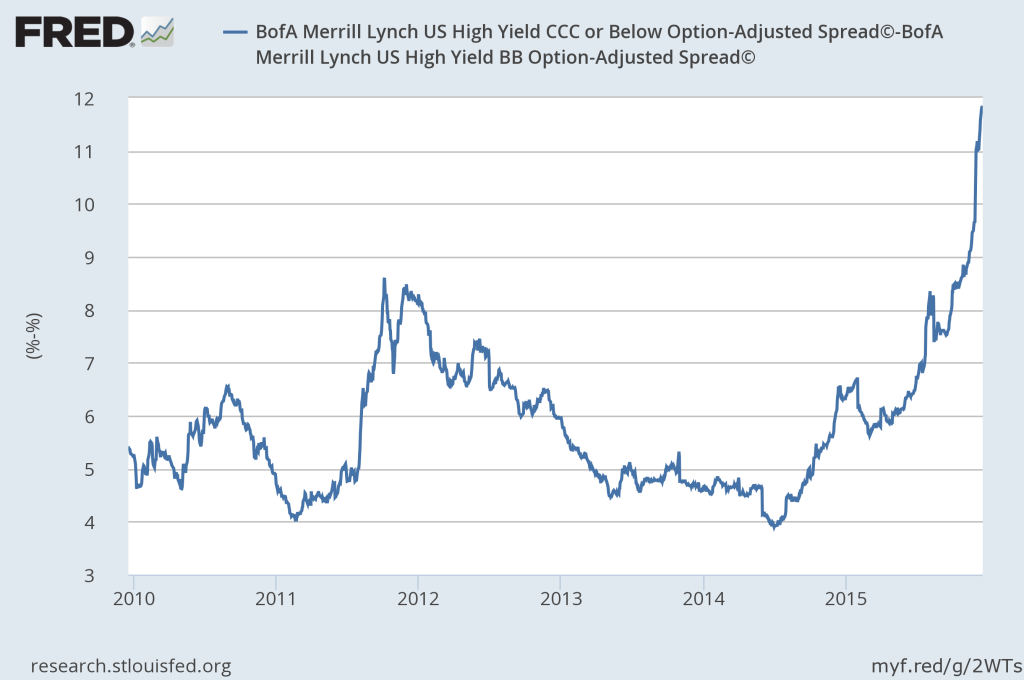There is an ongoing debate about the current state of the junk bond market and what it means for equities and, more broadly, the economy. Spreads on the junkiest of junk bonds have recently moved to their widest levels of this expansion.

The NY Times aptly reflects the consensus view that there has really been no, “rout,” in the market for junk bonds and that they don't signal anything more serious for other markets or the economy, as they don't represent a, “systemic risk.” In an article carrying the headline, “the junk bond rout that was't,” the paper reports:
…in conversations this week with a wide range of investors, Wall Street executives, and economists, no one told me they thought that the Third Avenue fund's liquidation was likely to set off another crisis. And while bubbles may yet emerge, by their very nature they're likely to be found somewhere entirely unexpected — not a closely watched, highly liquid market like the $1.3 trillion United States junk bond market.
Bloomberg, though, has an entirely different take, claiming, “The rout in junk bonds is intensifying and there's blood in the water.” While junk bonds may not represent a systemic risk as credit derivatives did during the financial crisis, they can be one of the more effective leading economic indicators. The Bloomberg article quotes a recently published research paper which posits:
One reason for looking at junk bonds is that the firms that issue junk bonds are closer on the risk continuum to a large mass of firms that are too small and too weak to issue bonds at all, and that rely on banks or the informal capital market for funds. A second reason for looking at junk bonds is that they may be a more sensitive indicator, perhaps a more sensitive leading indicator, of economic conditions than higher-grade bonds.
The paper finds that junk bonds are, in fact, a very good indicator for forecasting economic peaks if not troughs, effectively warning ahead of eight of the last ten peaks in the business cycle. And this just exemplifies how critical the credit cycle is to the economy. Junk bonds are simply the most sensitive segment of the credit market to changing financial conditions. In other words, these bonds react more dramatically to major changes in the credit cycle. Jeff Snider may have recently phrased it best:



